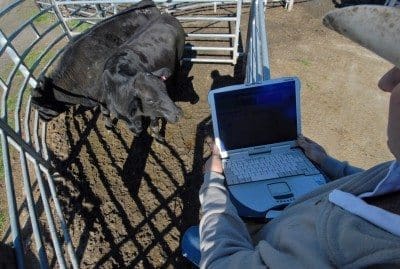THREE enormous proposed global mergers are currently in play in the ag chemical/animal health space, which if executed, would create a series of market giants.
Which, if any of the proposals get the go-ahead from regulators remains to be seen, however.
 The 2016 year is turning out to be a benchmark year for mergers and acquisitions in the agriculture sector.
The 2016 year is turning out to be a benchmark year for mergers and acquisitions in the agriculture sector.
In late December a proposed merger of Dow Chemical Co and DuPont was announced. Since then, Monsanto and Syngenta announced similar plans. Both the companies tried to acquire one another but that deal did not go through and both moved ahead.
Later, ChemChina entered an acquisition deal with Syngenta, and Monsanto made an attempt to acquire Bayer AG.
While all the companies involved have broad product portfolios in agriculture, most have exposure to the beef industry through animal health products, chemical weed control products and other channels.
This week, Bayer confirmed its intention to acquire Monsanto aiming to create the world’s biggest agricultural supplier and integrate pesticides and seeds markets. Details behind the $64 billion deal were not revealed, however analysts believe that Monsanto might resist the offer, on the basis of its faith in its R&D pipeline and longer-term competitive advantages.
Last month, Monsanto released disappointing first quarter of fiscal year earnings results with 23pc year-on-year sales revenue decline. The company slashed its FY16 profit outlook amid currency movements and increasing global competition and reducing profit margins. The company recently retrenched 3600 staff.
In reaction to Bayer’s proposition, Monsanto’s shareholders raised concerns. They termed the company’s approach “arrogant empire-building”, which they say has caused the company shares to drop further since the news surfaced. They fear the company might need to raise capital to accomplish this deal.
Analysts believe that such transaction will ratchet up the intensity of regulatory scrutiny of all agricultural consolidation activity. They see the German-based company to not only become the biggest agricultural supplier but also get direct access to genetically modified seeds.
ChemChina-Syngenta Acquisition
In February, ChemChina announced a move to purchase Syngenta AG in a deal valued at about A$60 billion. The deal was termed as the biggest ever foreign deal that was offered by any Chinese company. If the deal is completed, it would give Chinese companies access to the North American market, where Syngenta has a strong footprint through the pesticides and seeds market.
Syngenta’s date for shareholders to vote for the deal has been postponed to July 18. A spokesman from Syngenta stated, “We don’t have all the regulatory approvals yet.” Nevertheless, both companies still presume the deal will go ahead later this year.
Analysts believe that this prospective acquisition is likely to face lesser scrutiny from the authorities, since the merged company will only cater 19% US agrochemical market share. Furthermore, this acquisition is also projected to assert tough competition to the Dow-DuPont merger.
Dow-DuPont Merger
The Dow/ DuPont merger process is currently undergoing scrutiny from the US Securities and Exchange Commission. During its first quarter earnings announcement, DuPont stated that it expected the review to be completed by end of June.
DuPont CEO, Edward Breen said “We are shooting for October-November kind of close of the transaction. We’re in great shape in all our filings in all the jurisdictions around the world – China, Europe, Brazil, Asia and the US – all that’s in motion.”
Both companies anticipated the transaction to be completed by the second half of this year. The companies have already agreed to consolidate on an all-stock merger of equals, valued at nearly $130 billion. The merged company will get separated into three specialized business entities namely agriculture, material science, and specialty products.
Analysts had already predicted the merger to face a series of regulatory concerns, especially when it comes to the agriculture businesses. Nevertheless, both the companies signalled their willingness to divest some of their assets, if any such query arose from regulators.
The US anti-trust authorities are already assessing Dow-DuPont merger and Syngenta-ChemChina acquisition deals. The Monsanto-Bayer acquisition deal will only add to that burden.
The Wall Street Journal recently suggested that the chances of clearance of such deals from the US antitrust regulators were highly unlikely. If the mergers are approved, 70 percent of the global pesticide market and 83pc of US corn seed market would come under the control of the three consolidating corporations.
The approval of all three bids by the regulators was projected to result in higher price tags for the farmers and consumers.
